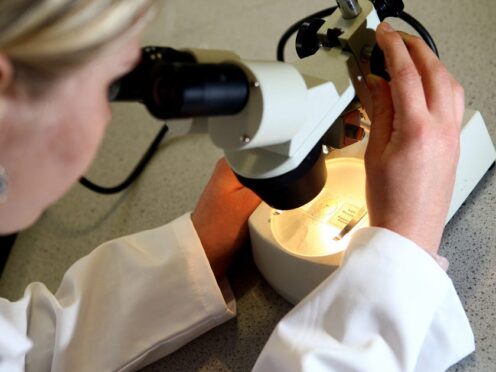A pill that releases tiny robots into the gut could help to treat inflammatory bowel disease (IBD), experts say.
The experimental treatment significantly reduced symptoms of the condition and promoted the healing of damaged colon tissue without causing toxic side effects, when tested in mice.
The micro robots are packed inside a liquid capsule which stays intact in the acidic environment of the stomach, but dissolves upon reaching the neutral environment of the colon.
Engineers at the University of California San Diego, in the US, say this ensures the tiny robots are selectively released where they are needed most.
Joseph Wang, professor at the Aiiso Yufeng Li Family Department of Chemical and Nano Engineering at the university, said: “We can direct the micro robots to the diseased location without affecting other organs.
“In this way, we can minimise toxicity.”
The micro robots in the pill are made of inflammation-fighting nanoparticles chemically attached to green algae cells.
These tiny particles absorb and neutralise pro-inflammatory proteins in the gut.
Meanwhile, the green algae use their natural swimming abilities to efficiently distribute the nanoparticles throughout the colon, speeding up the removal of the proteins to help heal inflamed tissue.
According to the researchers, the “beauty” of the approach is that it is drug-free, and the natural cell membrane is used to absorb and neutralise pro-inflammatory proteins.
When given to the mice through the mouth, the treatment reduced faecal bleeding, improved stool consistency, reversed IBD-induced weight loss and reduced inflammation in the colon, all without apparent side effects, researchers say.
The researchers are now focusing on translating their micro robot treatment into human studies.
The findings are published in the Science Robotics journal.
